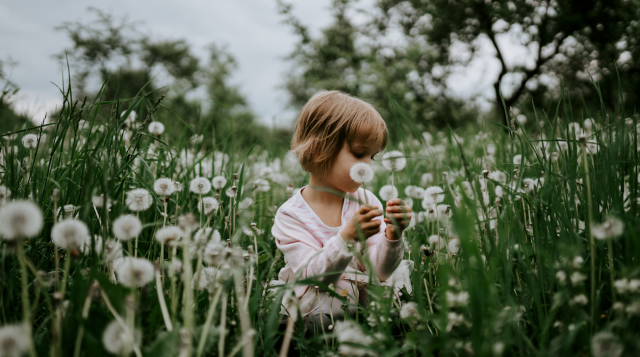
Even within the chaos of this pandemic, kids are still experiencing usual “kid stuff.” In my pediatric office, we are still seeing children for typical bumps, bruises, and bellyaches. It is also the time of year when kids are beginning to experience seasonal allergy symptoms. Different than previous allergy seasons, however, is that this year’s symptoms are causing more anxiety. Parents are (appropriately) worrying that any cough or sniffle is coronavirus. Now is the time to be reminded of the critical distinctions between viral illnesses and seasonal allergies.
If you can remember life just a few short weeks ago, you were calling your pediatrician when your child “looked sick.” And this shouldn’t change. We are expecting you to call our offices when you are worried. Things like sudden onset of fever, extreme fatigue, aches and pains, decreased eating, and trouble sleeping are signs concerning of a viral illness. Although children with coronavirus are typically experiencing milder symptoms than older individuals, a child with these symptoms should trigger a call to your child’s doctor for advice.
The key difference between allergies versus viral illnesses is the absence of fever and the presence of itch. Kids with allergies will have itchy or swollen eyes, itching or runny nose, and sneezing. Some kids will even get a sore throat or cough when pollen counts get high. In short, allergy kids look uncomfortable, but they don’t “look sick.” To help your child feel better, you should feel comfortable and confident using simple modifications at home and over-the-counter medications.
Here are a few other things to know about seasonal allergies:
Babies and toddlers do not suffer from seasonal allergies. Since young children are exposed to trees, grasses, and flowers for only a few weeks each year, it takes many seasons to react to various types of pollen. Also, sneezing during the first weeks of life is a healthy way babies can clear mucous from their nose and throat. A baby sneeze is not an allergic sneeze.
Parents underestimate the significance of untreated seasonal allergies in kids. Uncontrolled allergies can lead to inattention at home and school, poor academic performance, worsened athletic performance, and less quality sleep. If your child seems to more fatigued or having an unexpected lower performance at home, school, or after playing outside, consider seasonal allergies as a possible cause.
Great seasonal allergy control starts with keeping pollen outside of your house. When local pollen counts are high, a few changes to the daily routine can prevent sticky pollen from getting into the places children sleep and play. Changing your child’s clothes after spending time outside, washing her face and hair every night, and keeping the window closed (especially on windy days) will help to keep the pollen out. Don’t worry about air purifiers or gadgets that promise to reduce indoor pollen levels. The best practice is to keep pollen out of your house from the start.
Not all over-the-counter medications work the same. Some allergy treatments can result in undesired drowsiness or “zombie”-like behavior during the waking hours. Nasal steroid sprays help nasal congestion and watery eyes but can take up to a week to work. For fast and effective control of intermittent seasonal allergy symptoms, doctors recommend long-acting, non-drowsy antihistamines like Children’s Allegra. These medications are safe and effective on sneezing, drippy noses, itching eyes, and lasts throughout the entire day.
Pediatricians around the country have made impressive changes in their offices to keep kids and parents safe, and most are willing to talk through action plans virtually. If you have any questions or worry about any symptoms your child is showing, please reach out. We are ready and willing to help.











